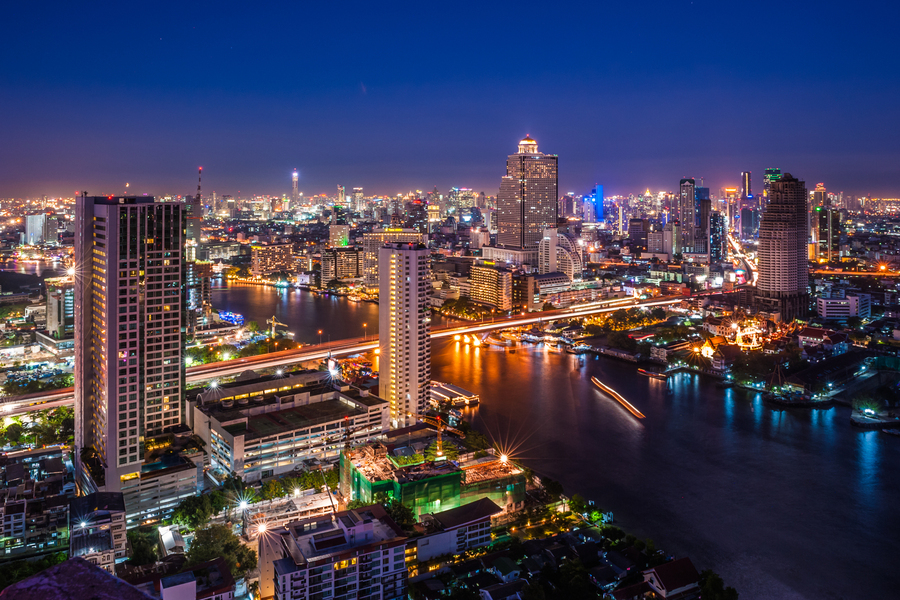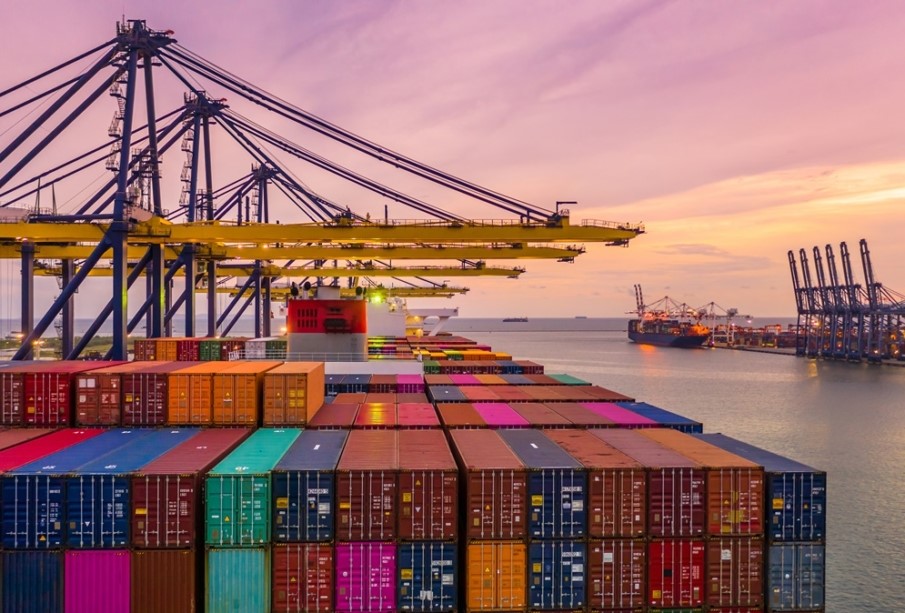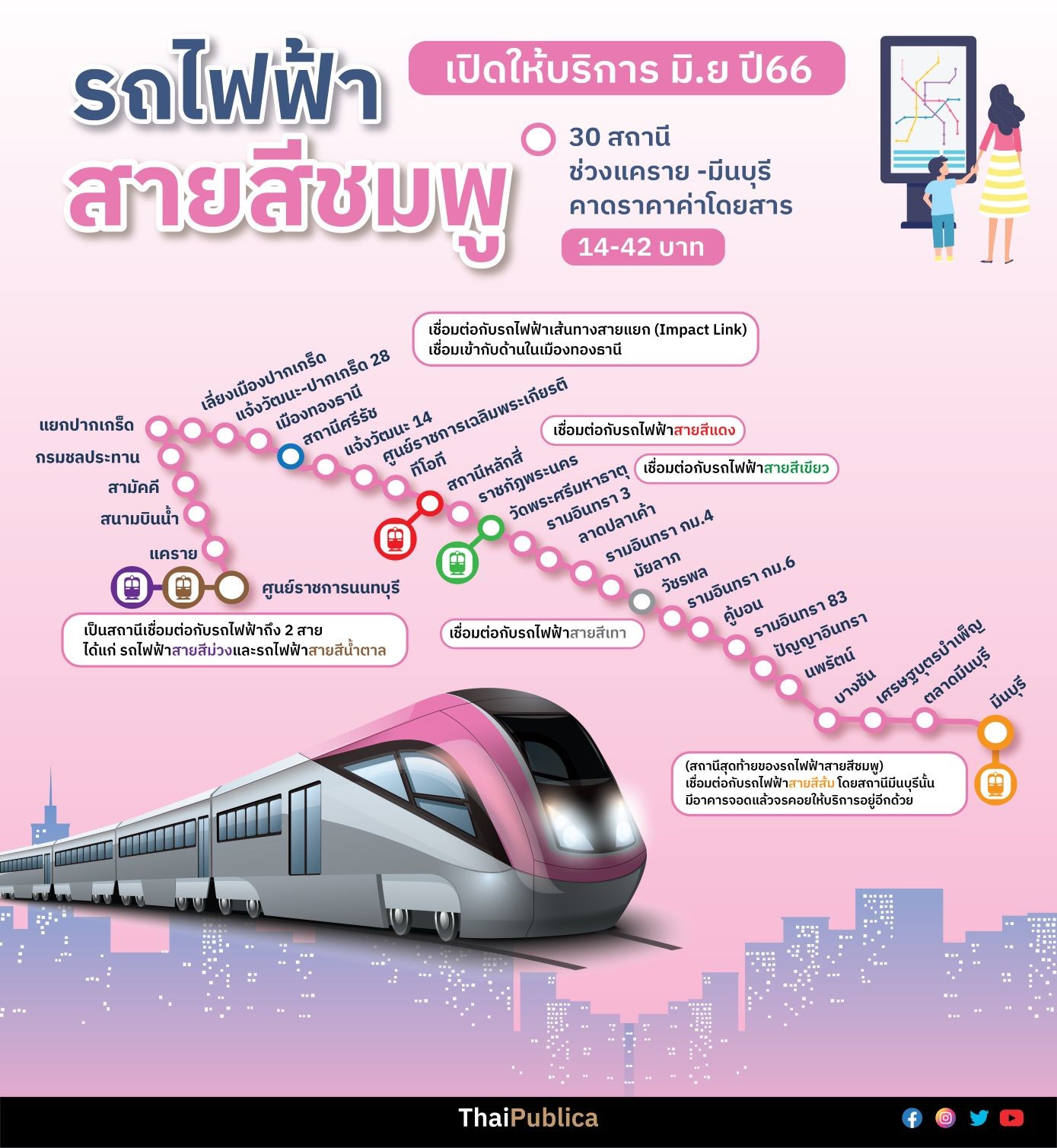
Why Thailand
(MAR23) Connecting hub

1. Strategic Location
Thailand is a key link between countries in Asia, with economic ties spanning the continent that include the transfer of goods, services, skilled labour, trade and investment. Thailand is the continent’s gateway between ASEAN and the rest of Asia. It is also an important production and export base for many of the world’s major industries, including the automobile and automobile component industries, computers and IT industries.
- Exports
The export figure in January 2023 was valued at US$20,249,500,000 showing growth over the previous month. Private consumption indicators also increased, partly as a result of government stimulus measures, while the value of exports (excluding gold) rose slightly. These figures are in line with industrial production, and private investment indicators. The service sector also showed improvement in line with the growing number of tourists. Federal spending also grew as a result of both regular and capital expenditure. Overall, Thai exports are still faring better than many Asian countries. Many of Thailand’s key export markets – the EU, Latin America, India, Africa, and ASEAN - returned to growth despite the impact of the global economic slowdown and the volatility of the Thai baht. The baht’s average value against the US dollar appreciated in line with investor optimism at the recovery of the Thai tourism industry, and the faster-than-expected reopening of China.

Photo credit: Bank of Thailand
- Investment in Thailand
The Ministry of Commerce revealed that in January 2023, the Foreign Business Operations Committee of Thailand permitted 52 foreign persons to invest in businesses in Thailand, consisting of 22 applications for business licences and 30 business certificates, with a total investment of THB 5,129,000,000. The top five nationalities for investors were Japan, Singapore, the USA, the United Kingdom, and China. These investments involve technology transfer which sees knowledge from overseas brought into the country to invest in the Thai workforce. Key industries and areas benefiting from this transfer of technology include design, 3-D modelling, the operation of specialised computer dampers, electrical system design, electronics for electric train projects, and operating systems for online television production. It is expected that throughout 2023 more than 100 billion baht will be brought into Thailand by foreign investors aided by the full reopening of the country to tourism and investment, driving market expansion and restructuring of domestic production.
- The 13th National Economic & Social Development Plan for the five years from 2023 - 2027
The 13th National Economic & Social Development Plan implements the national strategy and has set out the direction for national development over the five years from 2023 to 2027. The country’s development for the next five years is driven by five key goals:
1) Moving from a production structure to an innovation-based economy.
2) Developing the population for a new world.
3) Striving to create a society of opportunity and fairness.
4) Strengthening the country’s ability to cope with risks and changes within the new global context.
The plan’s objective is to transform the Thai economy into a high-value economy that is driven by technology and innovation that takes into account sustainable production and consumption, and raises protections for all elements of society. For Thailand to be able to compete successfully in the new global arena, the country must continue to adapt and keep pace with changes in digital technology, the environment, and an ageing society.
2. Easy Access
Thailand enjoys a strategic location within Asia, and boasts many facilities, public utilities and international-standard convention centres. The country is home to 10 MICE cities: Bangkok, Khon Kaen, Chiang Mai, Nakhon Ratchasima, Phitsanulok, Pattaya, Phuket, Songkhla, Surat Thani, and Udon Thani, with additional locations ready to be added to the list of options for a wide variety of MICE activities.
- Mega Projects
The Office of the National Economic and Social Development Council (NESDC) identified public investment and state enterprise investment as driving forces for the Thai economy in 2023. State-owned enterprise investment for 2023 is budgeted at THB 443,351,000,000. The top 10 investment projects are:
- Co-operation between the Thai government and the government of the People’s Republic of China to develop a high-speed rail system connecting Bangkok and Nong Khai, with a total investment of THB 179,413,000,000.
- The Tao Poon to Rat Burana section of the MRT Purple Line, budgeted at THB 91,974,000,000.
- Phase Two of the Transmission and Distribution Systems project with a budget of THB 28,585,930,000
- Expressway project from Rama III – Dao Kanong – Western Outer Ring Road, with a budget of THB 20,767,340,000.
- Railway construction project: Ban Phai – Maha Sarakham – Roi Et – Mukdahan – Nakhon Phanom with a budget of THB 61,273,310,000.
- Project to develop and expand Zone C of the Government Complex Commemorating His Majesty the King’s 80th Birthday Anniversary 5th December 2007, with a total investment of THB 17,343,860,000.
- Electricity distribution system expansion and improvement plan 2017 – 2021, with a total investment of THB 15,493,840,000.
- Railway construction project: Dan Chai – Chiang Rai – Chiang Khong , with a total investment of THB 76,368,660,000.
- The 9th Master Plan Improvement Project, with a budget of THB 28,142,500,000.
- Mae Moh Power Plant Units 8 – 9 Replacement Construction Project, with a total investment of THB 42,557,140,000.
- Airports
The government is accelerating the development of airports across the kingdom to accommodate the increasing number of passenger arrivals as the country fully reopens. The plan aims to promote Thailand as the hub of ASEAN. Existing airports are being upgraded to stimulate the country’s economy and competitiveness, and increase the capacity to support domestic and international tourism and transportation. These moves are in line with the government’s policy to fully reopen the country, to link tourist attractions, and to spread prosperity to all corners of the country, raising both the people’s quality of life and national security.
- Suvarnabhumi Airport – the airport is being expanded to reduce congestion and develop its role as a true regional hub.
- Don Muang Airport - Phase 3 of the airport’s expansion plans will see it able to accommodate up to 18 million domestic passengers annually.
- U-Tapao Airport – the government plans to link both passenger and freight traffic between U-Tapao, Don Muang, and Suvarnabhumi Airports with a high-speed rail service.
- Krabi International Airport – Construction of a third passenger terminal is underway to increase the airport’s capacity from 1,500 to 3,000 passengers per hour, or 8 million passengers annually.
- Mae Sot International Airport – the airport in Tak province has seen its capacity increased to handle 1.7 million passengers each year.
- Khon Kaen Airport – a planned new passenger terminal will see the airport’s capacity grow from 1,000 to 2,000 passengers per hour, or 5 million passengers annually.
- New World-Class Bangkok Arena
The new Bangkok Arena is located in the Bangkok Mall which will be the largest shopping centre in Southeast Asia. The hall, designed for concerts and other entertainment activities, will have a capacity of up to 16,000. The Mall Group, Thailand’s leading retail developer and owner, has partnered with global entertainment and sports powerhouse the Anschutz Entertainment Group (AEG) to jointly invest 10 billion baht in the new world-class arena.
Further, EM LIVE a new 6,000 seat capacity concert hall will be housed at the new Emsphere shopping centre. The state-of-the-art facility is destined to become an iconic landmark in the heart of Bangkok drawing locals and visitors from around the world.
These new venues will play significant roles in the country’s economic development and will elevate Thailand as the regional centre of the entertainment business, tourism, sports, arts and culture, and the MICE industry, when they open in 2023 – 2024.
More information: https://www.themall.co.th/

Photo credit: FB The Mall Group
3. New Development
- Transportation System Developments
The Khae Rai – Min Buri Pink Line is a key element of the electric rail system project of the Mass Rapid Transit Master Plan in Bangkok Metropolitan Region (M-MAP). The new 34.5 kilometre environmentally-friendly elevated Straddle Monorail line will service the residents in northern Bangkok, offering a convenient alternative that will reduce commute times, ease traffic congestion and reduce pollution, and bring additional economic opportunities to those along the line. The Pink Line’s terminal station at Min Buri interchanges with the Impact Challenger Station on the Impact Link Line offering huge convenience to MICE travellers. The project’s expected completion date is in 2023.

Credit Photo : FB ThaiPublica
- Technological Development
ChatGPT is the ultimate sophisticated AI for data-driven content creation. It can communicate directly with humans and its capabilities go way beyond merely helping to find answers in a few seconds. It can compose answers in grammatically correct academic language, sequence ideas, think analytically, complete and plan presentation content, conduct research, facilitate SEO-related tasks, help SMEs with their content marketing, and more – so it is hardly surprising that its popularity is now growing across the globe and in Thailand. In the academic world, students are able to make use of ChatGPT as a base of knowledge to enhance their results and competitiveness.
- Personnel Development
The Department of Skill Development continues to use both online and on-site strategies to enhance the digital skills of the Thai workforce enabling them to meet the evolving requirements of a labour market that demands workers with high-level digital skills. Beneficiaries of the Department’s offerings include those working in software and web development, data systems and databases, IoT, data security and the monitoring of advanced digital technology. A workforce needs to learn quickly, adapt, and evolve, and increasingly needs to rely on data translation. Thus enhancing one’s skill sets and competence continue to grow in importance both within workers’ existing line of work or in fields where demand is growing. The Department of Skill Development aims to accelerate the process for the upgrading of skills to allow workers to meet the demands of a digital workforce. In 2023, the target is to conduct digital skills training for 1,200 persons online and on-site. Training will be offered throughout the year by the Digital Personnel Development Institute (DiSDA), and skills development institutes and offices across the country.





